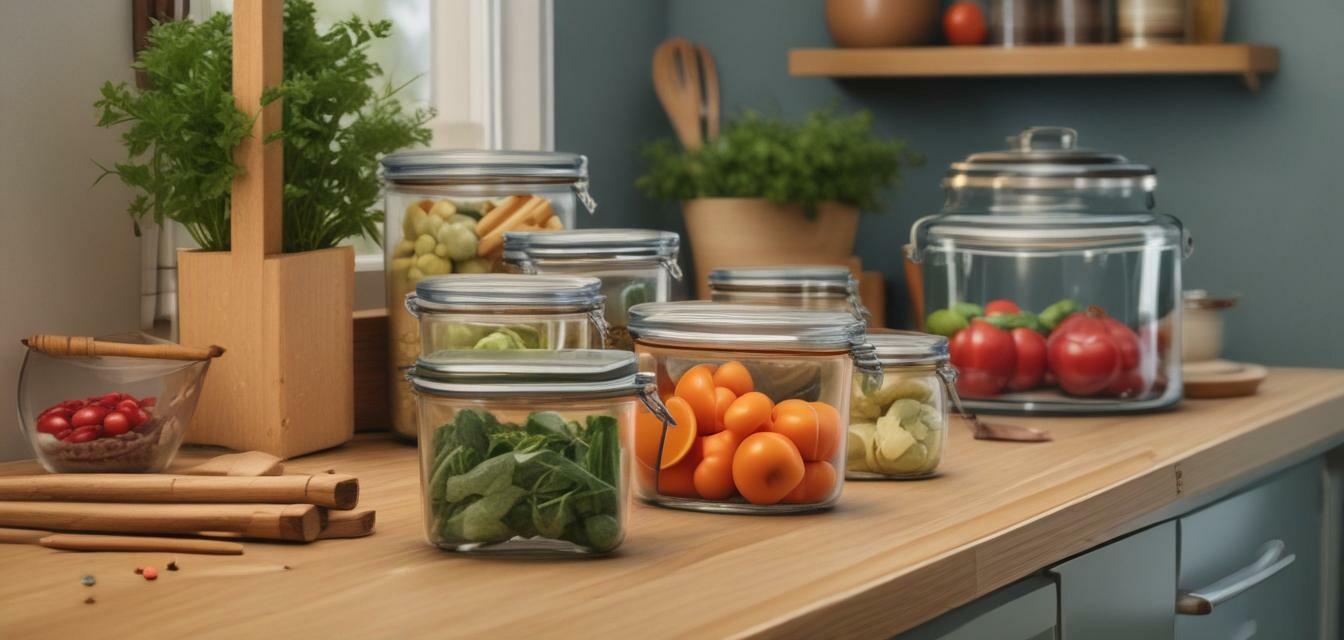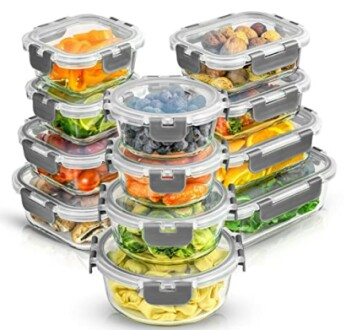
Best Practices for Sustainable Food Storage
- Select reusable and eco-friendly containers
- Minimize food waste through smart planning
- Utilize eco-friendly materials like glass and bamboo
- Store food properly to maintain freshness
- Explore energy-efficient storage options
Discovering effective ways to store food sustainably not only helps in reducing waste but also allows us to make conscious choices that benefit our planet. In this guide, we'll explore various eco-friendly food storage options and best practices to keep your kitchen organized while being kind to the environment.
Why Sustainable Food Storage Matters
Our kitchen choices have a considerable impact on the environment. Traditional food storage methods often rely on single-use plastics and non-biodegradable materials. By shifting towards sustainable alternatives, we can not only cut down on waste but also promote healthier food practices.
Key Benefits of Eco-Friendly Storage Solutions
- Reduces Waste: Using reusable containers prevents plastic waste.
- Healthier Food: Avoiding chemicals found in plastic keeps your food safer.
- Saves Money: Investing in quality containers reduces the need for frequent replacements.
- Supports the Environment: Choosing biodegradable or recyclable materials nurtures a sustainable future.
Best Practices for Sustainable Food Storage
1. Choose the Right Containers
Selecting eco-friendly materials is crucial. Consider the following options:
| Material | Benefits |
|---|---|
| Borosilicate Glass | Durable, lid options, oven and microwave safe |
| Bamboo | Biodegradable, lightweight, and stylish |
| Stainless Steel | Longevity, no chemical leaching, recyclable |
| Reusable Silicone | Flexible, can withstand multiple uses, dishwasher safe |
2. Avoid Food Waste Through Smart Planning
Planning meals and organizing your storage can drastically cut down on food waste. Here are some tips:
- Make a meal plan for the week and stick to it.
- Store food in portions to avoid over-serving.
- Use clear labels to track expiry dates.
- Incorporate leftovers in future meals to minimize waste.
3. Utilize Reusable Storage Solutions
Consider switching to reusable alternatives. Here are some examples:
- Glass food storage containers: A good example is the JoyJolt JoyFul 24pc Borosilicate Glass Storage Containers with Lids. These containers are durable and versatile, making meal prep much easier.
- Bamboo wraps: Substitute plastic wraps with bamboo food wraps. They can be reused multiple times and are biodegradable.
- Silicone bags: Silicone reusable bags help store and freeze food items without the plastic waste.
Product Spotlight
JoyJolt JoyFul 24pc Borosilicate Glass Storage Containers with Lids
A complete set of airtight, eco-friendly meal prep containers that are Perfect for all your kitchen storage needs.
Learn More4. Store Food Properly for Freshness
The way you store food can significantly impact its longevity. Here are some best practices:
- Keep your fridge at the right temperature (0°C to 4°C or 32°F to 39°F).
- Use airtight containers for dry goods to maintain freshness.
- Do not overcrowd your refrigerator to ensure air circulation.
5. Explore Energy-Efficient Storage Options
When planning your kitchen, consider energy-efficient appliances that support sustainable storage:
- Choose refrigerators with a high ENERGY STAR rating.
- Look for food dehydrators that help preserve food while using minimal energy.
- Opt for compostable containers to reduce landfill waste.
Additional Resources
For more information about eco-friendly kitchenware, check out our related articles:
- Bamboo Kitchen Utensils
- Eco-Friendly Food Storage
- Green Cleaning Products
- Eco-Friendly Storage Solutions
- Buying Guides
Conclusion
Sustainable food storage is not just a trend; it's a necessity for a greener future. By choosing eco-friendly materials, reducing food waste, and properly storing your ingredients, you can significantly impact your home and the environment positively. Start small, make changes, and watch how they contribute to a more sustainable lifestyle!
Pros
- Reduces plastic waste.
- Enhances food safety and quality.
- Encourages meal preps, cutting down on time and energy.
- Promotes a culture of sustainability in your home.
Cons
- Initial setup costs may be higher for quality items.
- Requires habit changes for maximum benefits.
Discover More Sustainable Options
Explore our Stainless Steel Kitchen Essentials and enhance your kitchen with sustainable choices!



